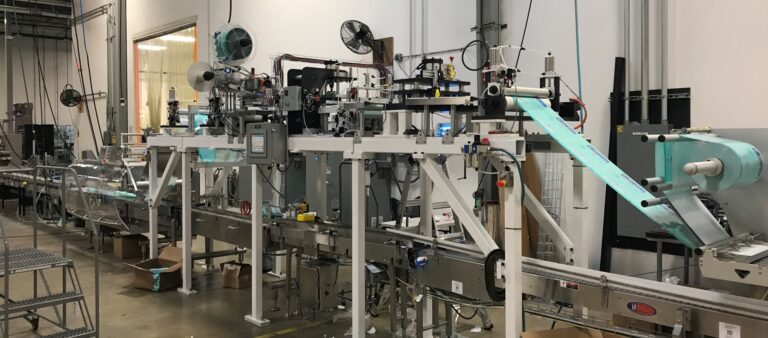Contact Us
Great things in business are never done one. They're done by a team of people.
Great things in business are never done one. They're done by a team of people.

Packaging Automation is the procedure of packaging a product without human support. Product packaging Automation can vary from private tools to easy process or full product packaging lines. They can be as simple as instantly creating as well as sealing containers to totally automated packaging lines that seal, pile and unitize whole pallets of goods. We have been providing services in Packaging automation.
Repetitive motion caused by manual tasks such as hand-filling and case-sealing can lead to strain injuries that may require treatment. In addition to pain, these injuries can also lead to lowered job satisfaction. Packaging automation is a great solution because it reduces the risk of repetitive motion-induced stress injuries. Plant automation also allows for higher case-sealing precision, resulting in fewer skewed case corners and more accurate adhesive applications. Machine-built boxes will also produce straight stacks with less possibility of damage during shipment.
Repetitive motion injuries can be painful and can even lead to back pain. However, repetitive motion injuries are also common in the packaging industry, and can cost as much as $50 billion annually in the US alone. Automation reduces the number of workers affected by this condition and increases the company’s productivity. Using automation in packaging processes can reduce the risk of repetitive motion injury by making the process easier for employees and reducing wear on employees.
Automation increases production speed by reducing labor costs and improving the quality of end products. While the increase in speed can vary according to the type of packaging and production process, consistent output is a benefit to all lines. Packaging automation is especially useful for companies that produce many small-to-medium-sized products and want to expand their market reach. By automating certain processes, manufacturers can increase production speed by up to five times and increase the quality of their finished products.
Increasing production speed is an important part of supplying retail outlets with a high-quality product. Manually inspecting packages can lead to bottlenecks, poor quality, and even mistakes, which costs money and causes downtime. By automating certain parts of the packaging process, manufacturers can eliminate these bottlenecks and ensure a consistent, predictable flow. Packaging automation will help increase production speed while also improving the quality of the product and increasing profitability.
The first thing to look at when considering packaging automation is your labor force. When demand for products increases, employees are likely to be more stressed, which can affect the customer experience. This can also have an effect on the overall work environment, leading to higher turnover rates. Additionally, adding extra shifts can negatively impact manual machinery. To reduce these problems, consider using automated packaging machinery. Listed below are a few benefits of automated packaging.
Automated equipment reduces the need for manual labour. Packaging automation improves throughput by reducing product damage in transit. In turn, improved packaging can result in reduced costs for customer service, administration, and product replacement. Additionally, improved throughput can reduce labour costs for product write-offs. Plant automation also eliminates these costs. For those who are not convinced yet, consider a free trial run.
As consumer demands for more information about their food and beverages rise, manufacturers must do more than simply improve their product labels. They must focus on the nuances of traceability and complete coding management. Food and beverage companies are facing an unprecedented challenge with this task, and packaging automation is key to achieving the goal of traceability. Traceability will improve control over product environments and prevent potential waste, rework, and product recalls.
Modern food manufacturing facilities face unique challenges, including increased regulatory compliance, a labor shortage, and disrupted supply chains. To combat these challenges and achieve better performance, many are turning to automation to improve traceability. Plant Automation will help the food supply chain become more efficient and accurate, while ensuring uninterrupted compliance with regulations. It will also ensure the safety of products. And the benefits for the manufacturers, suppliers, and consumers are numerous. Listed above are three ways that packaging automation can help your business. For more blogs that can help you know more about Industrial Automation keep visiting UPTIMEAUTO.COM.
Adding {{itemName}} to cart
Added {{itemName}} to cart